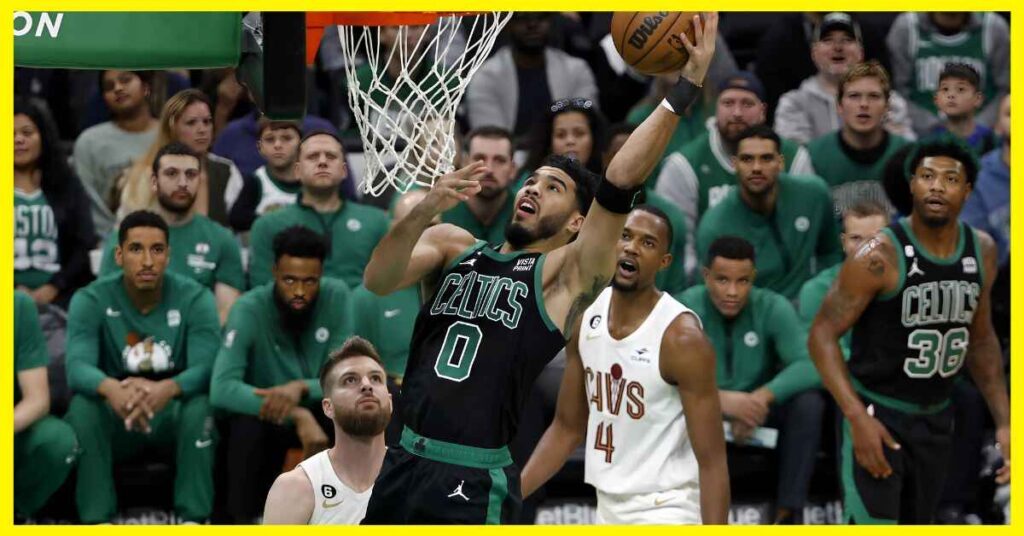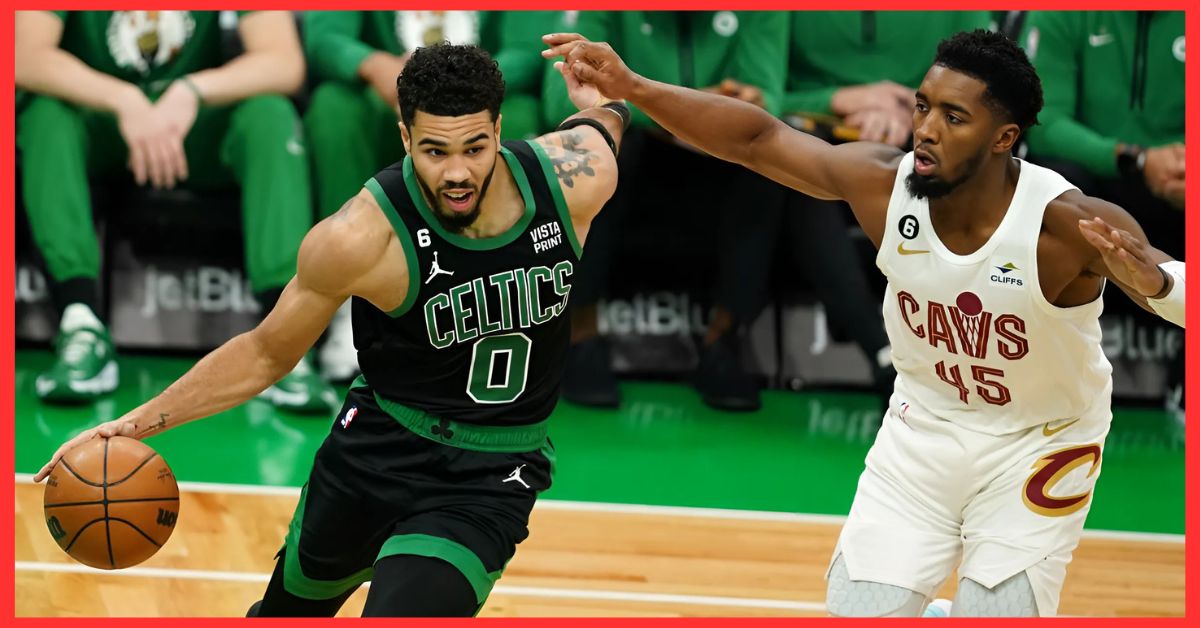In the realm of NBA matchups, few rivalries capture the essence of competitive basketball quite like the Cleveland Cavaliers facing off against the Boston Celtics.
This classic Eastern Conference showdown showcased the evolution of modern basketball, where individual player performance statistics paint a vivid picture of team strategies and execution on both ends of the court.
What Are Player Stats, and Why Do They Matter?
Basketball metrics act as the foundation for game evaluation, providing essential perspectives on both team tactics and the influence of individual players. In today’s NBA, understanding these numbers goes far beyond simple scoring totals.
They reveal the intricate dance between offense and defense, highlighting how each player contributes to their team’s success.
Consider these fundamental statistical categories that shape our understanding of basketball gameplay:
| Category | Impact on Game | Strategic Importance |
| Points | Direct scoring impact | Offensive productivity |
| Assists | Team play facilitation | Offensive coordination |
| Rebounds | Possession control | Second-chance opportunities |
| Steals | Defensive disruption | Transition opportunities |
| Blocks | Interior defense | Shot alteration |
Cleveland Cavaliers vs Boston Celtics: Points Leaders

The scoring battle in this matchup exemplified the offensive firepower present in modern NBA basketball. Boston Celtics’ cornerstone Jayson Tatum dominated the scoring column with an impressive 32-point performance, showcasing his elite scoring ability through a mix of perimeter shooting and calculated drives to the basket.
His teammate Jaylen Brown complemented this offensive onslaught with 25 points, demonstrating the Celtics’ balanced attack strategy.
On the Cavaliers’ side, Donovan Mitchell continued his stellar scoring form with 28 points, while point guard Darius Garland added 22 points to keep Cleveland’s offensive engine running smoothly.
Their combined scoring prowess highlighted the Cavaliers’ ability to maintain offensive pressure throughout the contest.
Assists: The Playmakers
The art of playmaking took center stage as both teams demonstrated high-level court vision and ball movement.
Darius Garland emerged as the premier facilitator, dishing out 9 assists while orchestrating the Cavaliers’ offense with precision.
Donovan Mitchell’s 6 assists showcased his evolution as a complete offensive threat, proving he’s more than just a scoring specialist.
For the Celtics, Marcus Smart’s 8 assists reinforced his reputation as one of the league’s most versatile point guards. Jayson Tatum’s 5 assists demonstrated his growing playmaking abilities, adding another dimension to his already impressive offensive arsenal.
Rebounds: Controlling the Game

The battle for rebounds proved crucial in determining possession control and second-chance opportunities.
Cleveland’s young center Evan Mobley dominated the glass with 12 rebounds, while Jarrett Allen secured 10 boards, forming a formidable interior presence for the Cavaliers.
Their combined effort on the boards demonstrated Cleveland’s commitment to controlling the paint.
Boston’s veteran big man Al Horford countered with 11 rebounds, proving that basketball intelligence and positioning can rival youthful athleticism.
Jayson Tatum’s 8 rebounds further illustrated his development into a complete two-way player, contributing significantly to the Celtics’ rebounding efforts.
Defense: Steals and Blocks
Defensive metrics underscored the influence of crucial athletes in hindering the offensive flow. Donovan Mitchell’s 3 steals demonstrated his underrated defensive abilities, while Jarrett Allen’s 2 blocks reinforced his reputation as a reliable rim protector.
These defensive plays often sparked transition opportunities and momentum shifts for the Cavaliers.
The Celtics’ defensive specialist Marcus Smart contributed 2 steals, living up to his reputation as one of the league’s premier perimeter defenders.
Robert Williams III’s 3 blocks showcased his elite shot-blocking ability, providing crucial interior defense for Boston.
How the Player Stats Shape the Game
The statistical contributions from both teams revealed the complex interplay between individual excellence and team success.
The Celtics leveraged their balanced scoring attack, led by Tatum’s 32 points, while the Cavaliers countered with Mitchell and Garland’s combined offensive output.
The playmaking brilliance of both teams’ point guards created numerous scoring opportunities, while the battle for rebounds remained fiercely contested throughout.
Read More: Who is Crazy Stacie Wife? Know Everything About Her
Conclusion About Cleveland Cavaliers vs Boston Celtics Match Player
This matchup exemplified the evolution of NBA basketball, where statistical contributions across multiple categories impact the game’s outcome.
From Tatum’s scoring dominance to Mobley’s rebounding excellence, each player’s performance added a unique chapter to this compelling Eastern Conference narrative.
The comprehensive statistical breakdown reveals not just individual achievements, but how these performances shaped the overall flow and strategy of the game.
Frequently Asked Questions (FAQs)
Who was the highest scorer in the Celtics vs Cavaliers match?
Jayson Tatum of the Boston Celtics led all scorers with 32 points, showcasing his elite scoring ability through a mix of perimeter shots and drives to the basket. His performance exceeded Donovan Mitchell’s 28 points for the Cavaliers.
How did the point guards perform in terms of assists?
Darius Garland of the Cavaliers led the playmaking department with 9 assists, while Marcus Smart of the Celtics contributed 8 assists. Both floor generals demonstrated excellent court vision and ability to create opportunities for teammates.
Which player dominated the rebounding battle?
Evan Mobley of the Cavaliers led all players with 12 rebounds, closely followed by Al Horford of the Celtics with 11 rebounds. Their battle on the boards proved crucial in controlling possession and creating second-chance opportunities.
Who had the most impressive defensive statistics?
Donovan Mitchell and Robert Williams III tied for the most impactful defensive plays, with Mitchell recording 3 steals for the Cavaliers and Williams securing 3 blocks for the Celtics. Their defensive efforts created significant momentum shifts throughout the game.
Which player had the most well-rounded statistical performance?
Jayson Tatum displayed the most complete performance with 32 points, 8 rebounds, and 5 assists, demonstrating his versatility as an all-around player. His contribution across multiple statistical categories helped drive the Celtics’ overall performance.

SwaggerDiary.com is managed by an experienced team dedicated to delivering insightful articles, engaging content, and valuable resources across various topics.








